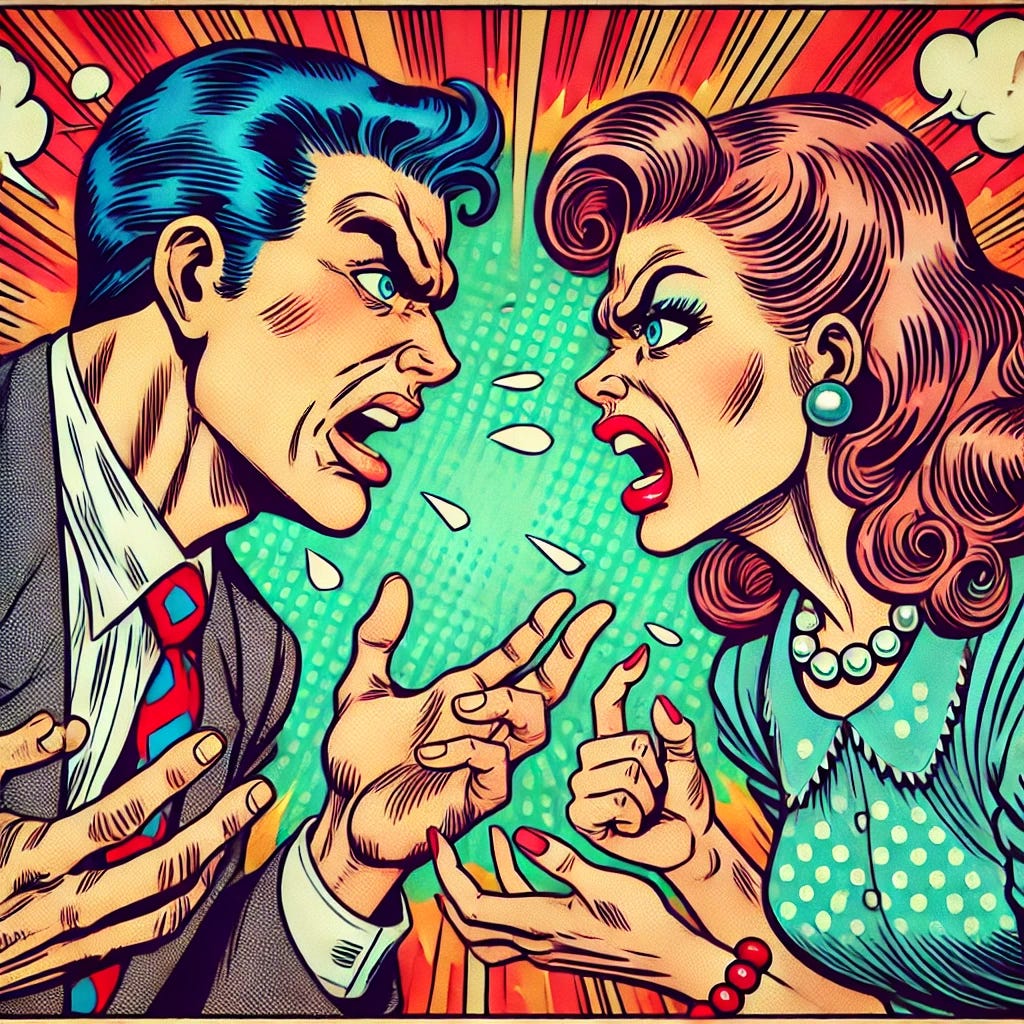The Weaponization of 'Woke': Words That Divide and Destroy
The other day, I asked Alexa to define the word woke. I didn’t fully understand how it’s being used today. What I heard left me unsettled. It wasn’t just the explanation—it stirred something deeper, something painful.
It took me back to my childhood in the 1950s and early ’60s, when words like nigger lover, queer lover, or commie (I had no idea back then what a communist even was) were thrown around to silence and shame people. Back then, these words were weapons, designed to turn empathy into something ugly and paint anyone who stood for fairness as an enemy.
Now, hearing woke twisted into a similar insult, I felt a familiar knot in my stomach. How did we get here again?
Woke started as something positive. It meant being aware, staying vigilant against injustice, and striving for what’s right. But now, it’s been turned into a slur—a shorthand for dismissing people who want the same things we all do but might disagree on how to get there.
When I hear woke used as an insult, it feels like a code word. A way to cover racism, sexism, homophobia, and a refusal to let go of old systems of inequality.
It’s not the first time we’ve seen this. Growing up, words like liberal and redneck were weaponized too. Being called a bleeding-heart liberal or a redneck wasn’t about dialogue—it was about shutting people down.
And that’s the real harm of weaponized words. They don’t just hurt people; they dismiss entire ideas. They give us permission to stop listening.
Take cancel culture, for example. It’s become a flashpoint, especially on college campuses. Accountability is important — using our voices to challenge harmful ideas is essential. But sometimes it goes too far. Silencing people completely, even when their views deserve to be challenged, isn’t progress. It’s fear.
We need to stop shouting people down with single words and start talking to each other again.
Conclusion
The words we choose carve the paths we take together. They change the way we understand each other and the world around us.
“Sticks and stones may break my bones, but words will never hurt me.”
We tell ourselves this, but it’s a lie.
When we use words to divide, it’s like a cat clawing at a chair. The damage starts small—just a few scratches here and there—but those scratches add up. Before we realize it, the chair is in ruins, and the damage is permanent.
They don’t just leave scratches—they make wounds that fester over time. Instead of stitching us together, divisive words cut the threads of trust, leaving us all frayed and damaged.
So, the next time you hear a word like woke, ask yourself: What am I really saying? Are my words fostering connection—or leaving wounds that linger?
How This Post Came Together
This post started with my reaction to a definition of woke and how it reminded me of divisive language I heard growing up. Through reflection and discussion with my AI chatbot, I explored how words—like woke, liberal, redneck, and racist—are used to dismiss people and ideas. By digging into both sides of the issue, I aimed to share a balanced perspective on how language shapes our society.
Special thanks to Al, my ChatGPT AI assistant, for help researching and building this post.
That's My Perspective.







